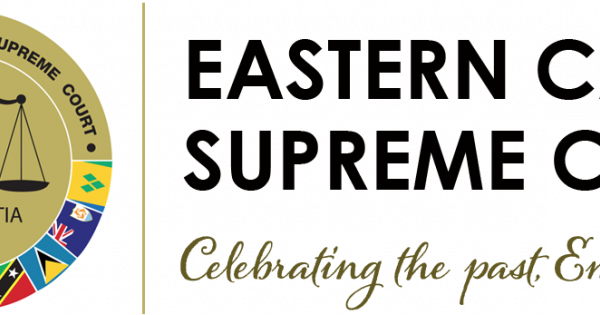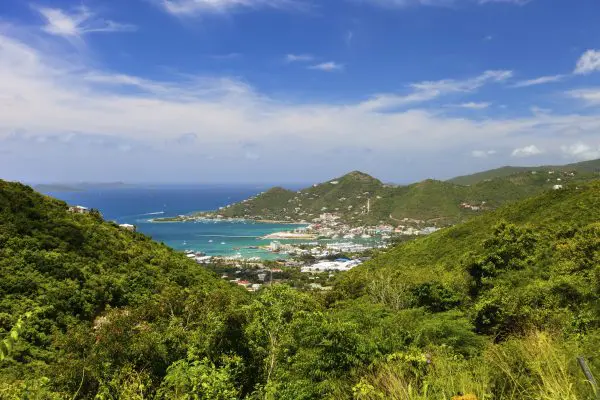Freezing orders are one of the most important weapons in a court’s arsenal to prevent parties from disposing of or dissipating assets to ensure they will be available to satisfy a potential future money judgment.
In the British Virgin Islands, the court is empowered to grant a freezing order under the provisions of the Eastern Caribbean Supreme Court and the Civil Procedure Rules. This includes the so-called “Black Swan” jurisdiction—the power to grant freezing orders against a respondent domiciled in the Virgin Islands in support of litigation taking place in another forum. Freezing orders are particularly useful in claims of fraud. However, a sampling of Court of Appeal decisions over the past five years demonstrates the expansion of their use beyond fraud cases to a range of disputes, including divorce proceedings, unfair prejudice arbitration, and probate litigation.
As a preliminary point, it is worth noting that freezing orders have two subcategories. The first is a Mareva type order which may be granted, normally to prevent frustrating a possible damages award in the future. A variant on this type of order is one which is granted where a vested or proprietary ownership interest is asserted to an asset. The BVI court will grant either type of order, although some of the protections which the court regularly requires on the grant of Mareva order may be less likely required if a strongly arguable proprietary interest can be shown. While freezing orders are therefore useful in a variety of cases, they are not always appropriate. Follows are some examples where freezing injunctions were involved.
Deceased Shareholder Estate
In November 2018, the Court of Appeal delivered judgment in the case of Liao Hwang Hsiang v Liao Chen Toh. O’Neal Webster litigation partner Nadine Whyte successfully appealed the order of the lower court on the hearing of an application for a freezing injunction. At that hearing, the court made orders restraining the administrator of a deceased shareholder’s estate from taking any steps to distribute the assets of the estate until after the conclusion of related proceedings in Taiwan.
The substantive dispute concerned entitlement to the estate of the deceased sole shareholder of a BVI Business Company. Interlocutory applications were made for directions, and for a freezing injunction. Despite finding that the applicant for the freezing injunction had not met the requirements to obtain it, the Court proceeded to give directions substantially in the same terms as the freezing injunction that had been applied for. The Court set aside the judge’s order, holding that the judge had taken improper considerations into account and had erred in her discretion in making the directions order at the hearing of the freezing injunction—that hearing should have been concerned primarily with whether or not there was a real risk of dissipation of assets.
Unfair Prejudice
In its June 2018 judgment in Donna Union Foundation v Koshigi Limited & Svoboda Corporation—a London Court of Arbitration unfair prejudice case brought against the BVI companies which were majority shareholders of a Maltese company—the BVI Court of Appeal held that a freezing injunction may be continued against a company domiciled outside of the BVI where:
- The company was domiciled within the BVI when the freezing injunction was originally granted, pursuant to the preservation of liability provisions of the British Virgin Islands Business Company Act, section 183.
- As an interim measure in aid of an international arbitration outside of the BVI under the provisions of the Arbitration Act, section 43.
- The court otherwise has jurisdiction over the party.
The BVI Court of Appeal also held that section 43 of the Arbitration Act is wide in its scope and should not be given a restricted interpretation. Therefore, there is no basis upon which a court can properly read into the express wording of the Act the need for assets to be in the Virgin Islands in order for the court to be able to grant interim measures in aid of a foreign arbitration.
Investment Fraud
Rustam Yusufovich Gilfanov & Sergey Aleksandrovich Tokarev v Maxim Valeriovich Polyakov, Valeriy Oleksandrovich Polyakov & Phoenix Holdings Limited was an investment fraud case. In its February 2017 judgment, the BVI Court of Appeal found that:
- Where there is a case of actual dissipation of a specific asset, the court can and should rely on these facts to find that there was a good arguable case for a general risk of dissipation.
- Where the central issue on a claim is fraud, a judge should consider whether a finding that an applicant has a good arguable case of itself could lead to an inference of a risk of dissipation.
- The limit of the freezing injunction should be determined by the amount for which the claimant has a good arguable case.
- A freezing injunction can be made against a non-cause of action defendant where the substantive defendant has recourse to or control over the assets of the non-cause of action defendant, or where there is a proprietary claim over such assets.
Divorce
In Tsoi Tin V Tan Haihong & Yu Heng International Investments Corporation, the appellant was involved in divorce proceedings in the People’s Republic of China (PRC) and attempted to transfer shares in a BVI company, purportedly representing 50 percent of the matrimonial assets to a Samoan company. His wife applied to the BVI court for a freezing order against the BVI company. The appellant was not a party to that application but was served pursuant to the direction of the judge in the court below, appeared and gave evidence. The judge granted the freezing injunction and the appellant appealed. The Court of Appeal held in February 2014 that the appellant had no standing to appeal the freezing injunction, as he was not a party to that application.
It should be noted that this decision does not prevent a third party or nonparty to a proceeding who is affected by a freezing order from applying to court to set aside or vary the order. Indeed, the standard form freezing order makes express provision for such an application. A court’s approach to such application will be driven by the evidence placed before it and what is just and convenient in all circumstances.
Requirements for Freezing Injunction
The litigation team at O’Neal Webster is ready to assist parties who may seek or seek to resist, set aside, or vary a freezing injunction. The requirements for a freezing injunction are:
- The applicant must have a good arguable cause of action for the amount the freezing injunction is sought in respect of;
- The BVI court must have jurisdiction;
- The existence of assets in respect of which there is a risk of dissipation; and
- The applicant must provide an undertaking in damages, and at times, fortification.
Additionally, many other remedies can be used as alternatives to, or in support of, freezing orders, such as stop notices and disclosure orders. Nadine Whyte can assist you in determining which remedies are most appropriate in your particular case, given your circumstances, and the value of the claim. Contact Nadine at +1 284-393-5800 for more information.



